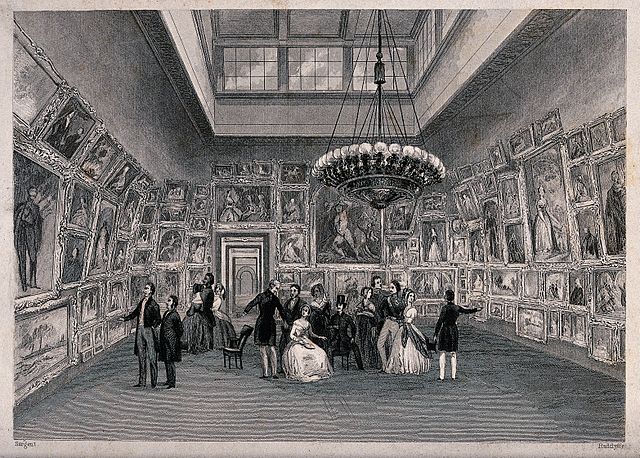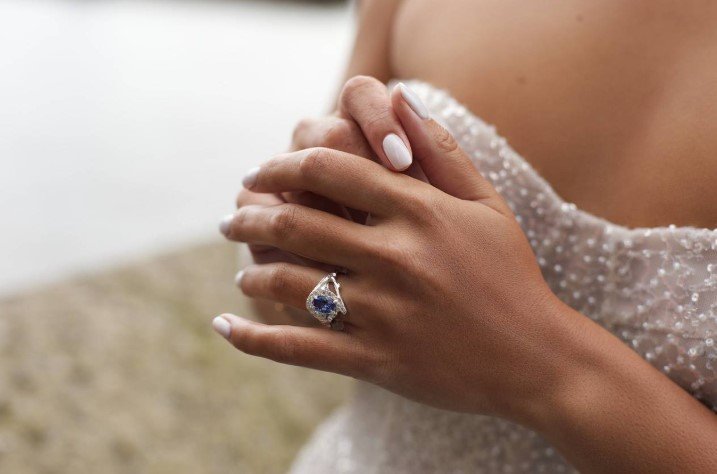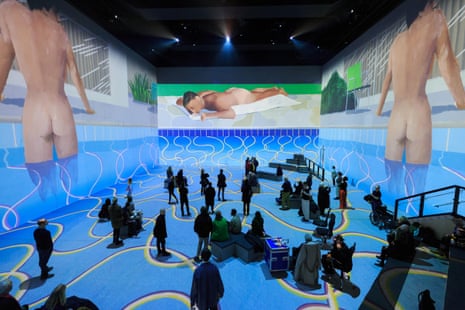
Courtesy of Wikimedia Commons
Assume about your favorite song, a film you despised or a modern-day artwork set up that manufactured you recoil in confusion. Now inquire your self: why does this art have an impact on me so significantly? Why do these sound waves elicit these kinds of extreme feelings? Why are these speedily-altering photographs so assumed-provoking?
Most of us are excellent at chatting about artwork, especially artwork that we genuinely like or dislike. It is additional tough, nevertheless, to location those people likes and dislikes into a broader schema of how we believe about art. Such a schema is tough to articulate because it forces us to expose elementary assumptions we make about the character and intent of inventive endeavors. For this explanation, I will present an technique for examining inventive operates — types that you like, dislike or anything at all in involving — to assist you consider about and discuss artwork.
Start out by thinking of why art issues. Probably you feel the function of artwork is to invoke correct elegance. Perhaps it is to glorify God via resourceful endeavors. Or, it could be to launch the artist’s insuppressible emotions. Several men and women believe that that art has a lot more than 1 function, providing numerous worth to diverse ambitions. Nonetheless, all motives that artwork matters can be categorized in two lessons: transcendent and procedural.
Transcendent reasons for art are dependent on some final, theoretically achievable target. Attractiveness, symmetry and glorification of God are all transcendent inventive applications. Alternatively, procedural applications for art target on the development and consumption of the work by itself. Expressing the artist’s thoughts or conversing with a cultural zeitgeist are procedural creative ambitions.
If the criterion is transcendent, talking about art is rather basic. A great creative discussion is made up of figuring out what ever objective you truly feel is essential and asking how well the artwork accomplishes it. The system, design and style and heritage of the piece can all be subordinated to this finish. Comprehension this paradigm of artwork assessment can clarify moments in the heritage of artwork that may possibly now seem to be alien to us. For occasion, it gets to be apparent why the famously-discordant tritone interval was shunned in medieval tunes as “the devil’s interval.” It was a technique judged to violate the stated intention of musical endeavor at that time, the glorification of God. Of study course, the fantastic problems of transcendental artwork examination is choosing and defending which of an infinite array of doable goals is in the end the most essential.
Procedural ambitions for art make discussion a lot more sophisticated. Even with how purely natural it may possibly appear, historian of tips Isaiah Berlin describes these kinds of an strategy to art as a fairly-recent innovation. In an exquisite sequence of lectures from 1965, Berlin describes that the perspective of art, and without a doubt everyday living frequently, is not simply the pursuit of a objective, but an critical generative procedure in its personal ideal. This generative, and thus procedural, solution to artwork is the elementary innovation of Romanticism. The Romantic movement introduced the now common strategy that humans are culminations of will that ought to generate. Consequently, artwork is the consequent expression of our chaotic will.
When analyzing artwork for procedural targets, start off with your response following encountering the do the job. This require not be an psychological reaction it can be a response centered on rational thoughts, inner thoughts, or one thing wholly unique. The central dilemma is: how are you distinctive now acquiring skilled the artwork as opposed to prior to you were uncovered to it?
This core reaction exists for all people and for all art. The reaction gives a kernel on which the rest of your understanding of the piece can be built and is technically adequate by itself to deliver substantive art criticism. On the other hand, you can round out your dialogue of the artwork at hand by thinking of its record and method. Both equally of these areas are critical in their individual suitable and can assist you articulate your main response.
Method is the set of applications the artist uses to generate their piece and to endow it with an aesthetic high quality – to make it “art.” Knowledge the artist’s strategy tethers the tangible characteristics of the do the job to a additional abstract main reaction. Approaches are also important in their have proper simply because they situate the artist in a broader stylistic community. This connection hints at the closing critical characteristic of procedural analysis: heritage.
The background of a individual artist or function of artwork positions the artist in a dialogue with a imaginative group. For most transcendental goals, the heritage of a operate of artwork does not significantly make a difference since it does not mirror how proficiently the art accomplishes its aim. To look at artwork via a procedural lens, nonetheless, commonly requires an knowing of what produced the artist pick to develop the piece in the location and time that they did. Background is what answers those people issues and bridges the hole involving the common planet of arts, the specific do the job of art, and your experience of it.
Discussing art can seem to be intuitive and uncomplicated, but what we say about art exposes vital assumptions about what we think art ought to be and how we recognize its plans. Crafting an analytical architecture as a result of which to review art delivers and situating our watch on art in it fosters a relationship among suggestions about artwork and attainable targets artwork may well have. By explicitly acknowledging our assumptions, we can make our conversations additional compelling and our aesthetic dialogue extra insightful.
Sam Shafiro (he/him) (25C) is a Political Science main from Oak Park, Illinois. He is concerned with the Emory Barkley Forum for Discussion, Deliberation, and Dialogue and the Emory SIRE undergraduate investigate plan. In his absolutely free time, Sam enjoys bananas and celery, as effectively as other fruits and greens.




More Stories
Unique Engagement Ring Designs Loved by London Brides
Top Benefits of Joining PAFI : The Indonesian Pharmacists Association
4 Industries That Use Large Industrial Tents